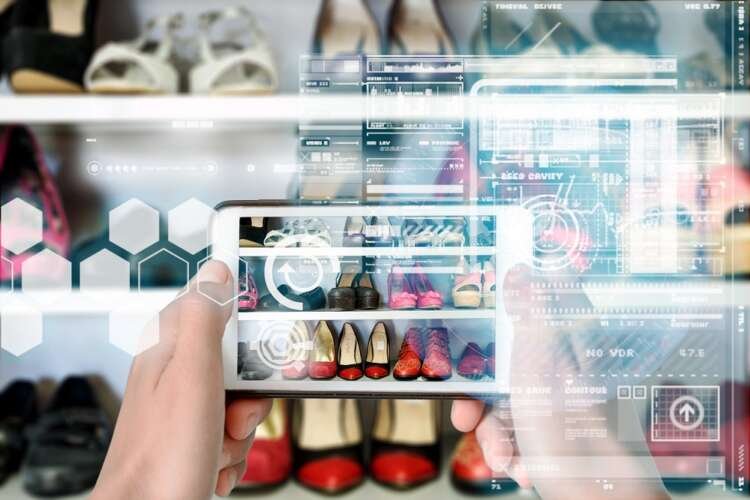Autonomous stores: How technology is revolutionising the retail industry


By Vasco Portugal CEO of Sensei
Vasco Portugal CEO of Sensei
The retail industry is in the middle of a major pivot towards autonomous stores. Equipped with state of the art servers, autonomous technology providers are able to turn any store into an efficient, cost effective, checkout-free store.
Consumers now want a fast, easy, and convenient shopping experience. On average, a person spends nearly two years of their life waiting in line and with the proliferation of delivery, and click & collect services during the pandemic, consumers have realised they could spend that time doing something else of value to them. Fortunately, autonomous technology has many benefits that are already starting to transform the retail industry.
It increases operational efficiency
Autonomous technology allows retailers to better utilise shelf space. What was once an area occupied by cashiers is now filled with more displayed products, in turn increasing sales. In addition, the technology is able to keep track of stock in real time, making inventory management much more efficient and mitigating the risk of a customer coming all the way to a store only to find out that the product they want is out of stock.
There is a lot that physical stores can learn from online merchants and autonomous technology can help to close this gap. When I go to a digital shop there are rarely issues with stock, but in physical stores this can often be the case. If retailers embrace the latest technology they will amplify the physical shopping experience and build greater brand loyalty with customers.
As consumer expectations are evermore demanding, retailers can no longer afford to be inefficient and wasteful. So many stores today end up discarding a lot of their unsold products, this is especially the case with supermarkets. Autonomous technology provides real time stock management capabilities, and offers insights on the product shelf-life and interactions with consumers. Retailers that adopt this technology will be able to make better purchasing decisions in the future and reduce stock waste.”
Autonomous retail technology also provides numerous layers of store security. Anyone that walks into a store is detected via a sophisticated network of cameras and sensors. There are many redundant software modules running in parallel, so even if you manage to sneak something past one module, another will pick it up right away.
Retailers are now seeing the broad value in this technology as we see more and more checkoutless stores open in the UK. They no longer need to worry about the security of their brick and mortar stores or the staff manning them overnight. Autonomous stores can remain open 24 hours a day without staff if necessary, allowing retailers to maximise revenue and reduce costs while significantly improving convenience for the customers.
It improves the consumer shopping experience
The future of retail will be consumer-centric. As more consumers crave seamless experiences, automated shops become increasingly appealing. Autonomous stores like Continente Labs in Lisbon, integrate AI and cameras to discreetly shadow movements that allow consumers to conveniently, and quickly roam in and out of stores.
With automated checkouts, the role of the retail worker is allowed to evolve for the betterment of shoppers and staff. Employees are no longer stuck behind a cashier all day. They will now be on the shop floor acting as ‘store advisors’, providing customers with on demand product advice and assistance.
It is also important that we don’t leave anyone behind as we accelerate towards this retail future. This is why we will see some stores adopt a hybrid model before going fully checkoutless, meaning stores will function as autonomous stores, with an option to use a checkout. This is especially important when we look at the less digitally savvy, or those that might not have a digital device on their person.
It provides retailers with valuable consumer insights
Retailers that are slow to adopt autonomous store technology are missing out on crucial, real-time, consumer insights that will give them a competitive edge.
The technology present in autonomous stores measures consumer reactions to product placements and layouts. This provides store owners with insights on which products consumers are most interested in, helping them to make better purchasing decisions.
In the long-run, the customer is key to business success. Therefore, it will become even more imperative that businesses adopt autonomous technology to better understand the wants of their consumers, and maximise revenue.
It is future-proofing retail
Grocery retailers are always looking for ways to innovate, improve their customer relationships, and deliver better in store services. This explains why they have continued to grow despite the pandemic. Think Tesco, Aldi and Sainsburys, retailers that have all pivoted towards checkout free stores in many parts of the UK. Therefore satisfying the needs of customers today while also improving their in store operations. The success experienced by some of these big retailers is spurring many others to look into how they can utilise autonomous technology in their stores to fuel growth and increase traffic. Autonomous solutions are at the forefront of reinvigorating retail and will be integral to how the industry future-proofs itself. With this trend towards checkout free stores continuing to grow in the years to come, it is a very exciting time to be in retail.
Explore more articles in the Technology category











